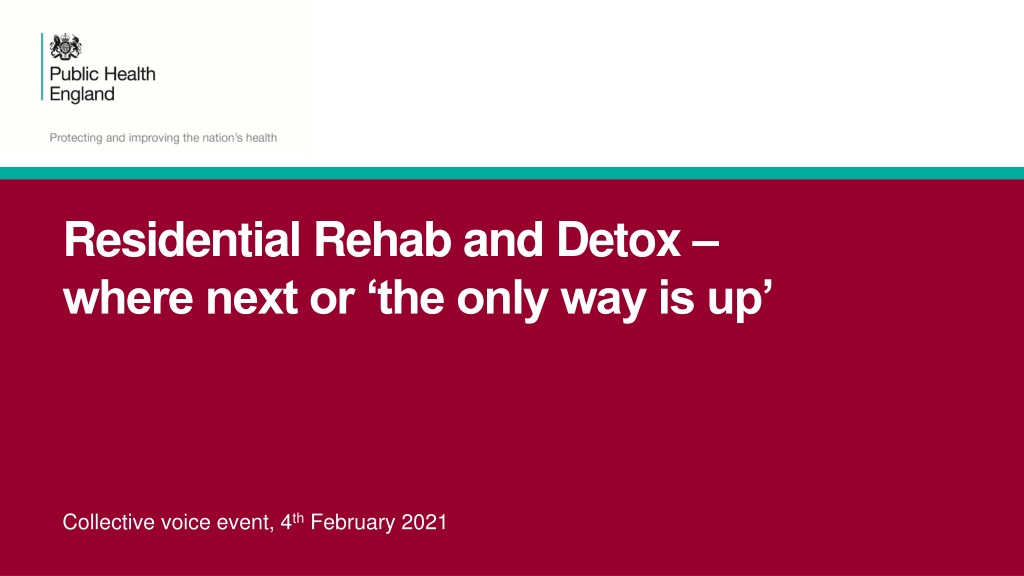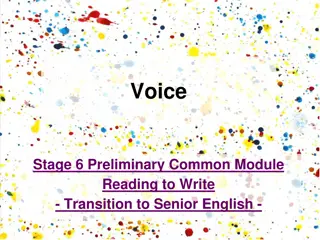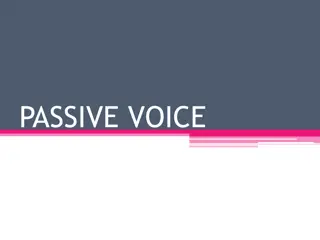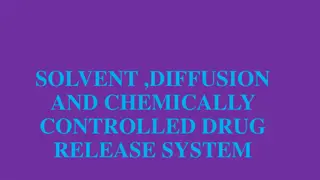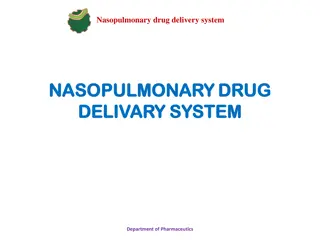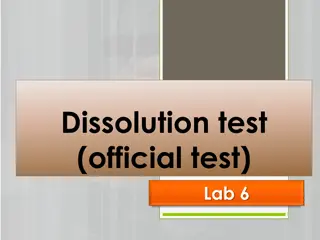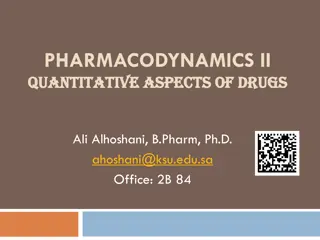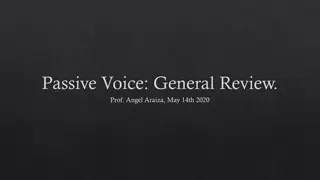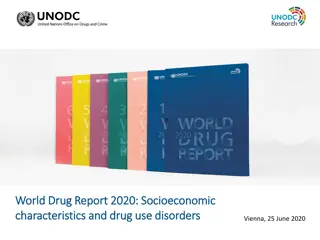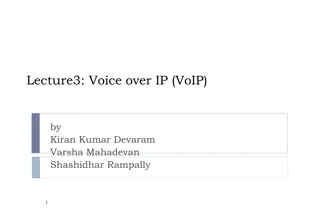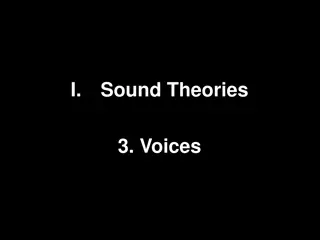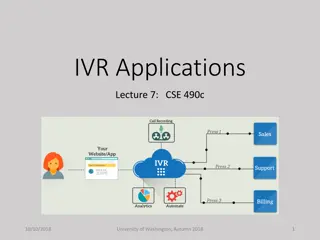Transforming Drug Treatment: Collective Voice Event Insights
Explore insights from the Collective Voice event focusing on residential rehab, detox services, and the recent government funding injection of £80 million for drug treatment. The event discusses challenges, funding allocations, and strategies to address drug-related crime and deaths through enhanced treatment services. Discover the grant distribution details and the shared vision to combat drug-related issues effectively.
Download Presentation

Please find below an Image/Link to download the presentation.
The content on the website is provided AS IS for your information and personal use only. It may not be sold, licensed, or shared on other websites without obtaining consent from the author. Download presentation by click this link. If you encounter any issues during the download, it is possible that the publisher has removed the file from their server.
E N D
Presentation Transcript
Residential Rehab and Detox where next or the only way is up Collective voice event, 4thFebruary 2021
Introduction-outline How we got here 80m Dame Carol Black and system reform The way ahead and reasons to be cheerful 2 Collective Voice Tier 4 4/3/21
How we got here- some reflections, a systems issue Funding cuts High cost low, low volume Collapsing into the middle Accountability Local-national and within systems Loss of plurality Localism and the diversity of visions In the face of adversity- circled the wagon and fired in Lacked a unified coherent lobby Everyone s right and everyone's wrong then they are absolute Reduced improvement support Changes to commissioning and commissioning structures Prime providers Regional commissioning almost extinct Cumulative effective marketisation 3 Collective Voice Tier 4 4/3/21
80m- a kick start but not the solution. The government has announced an additional 80 million to fund drug treatment in 2021/22, as part of a 148 million funding package for reducing crime. This is the biggest increase in drug treatment funding for 15 years. The 80 million is new funding for 1 year to enhance drug treatment, focused on reducing drug-related crime and the rise in drug-related deaths. This funding is in addition to the money local authorities (LAs) already spend on substance misuse from the public health grant. 4 Collective Voice Tier 4 4/3/21
80m will be split into 3 separate grants 1. Universal available to all LAs except for those selected to be Accelerator areas. These grants will account for the majority of the 80m. 2. Accelerator available to a small number of local authority areas as an extension of Project ADDER. These LAs will receive larger grants. This will be alongside Home Office funding for targeted enforcement activity by the police and the targeting of recovery support resources and interventions, such as employment support and criminal justice system interventions, by other government departments. 3. Inpatient all areas will be able to benefit from grants awarded to regional or sub-regional consortia of LAs for commissioning inpatient detoxification beds. 5
Universal Each eligible LA will receive a letter in early March advising of the LA s universal allocation and formally requesting that it submits an application for the drug treatment additional services grant. The letter will also include a menu of interventions (MOI) that are eligible to be funded. This grant is to be used to help drive down the crime associated with the drug market, particularly acquisitive crime and violent crime, by expanding treatment capacity for offenders and pathways between criminal justice and treatment services. It should also be used to reduce drug-related deaths, primarily from overdose but also caused by infections. 6
Indicative menu of interventions Below is an indicative list of options that the universal grant could be used for. A final, more detailed menu of interventions will be provided to LAs offering more treatment places increased usage of residential rehabilitation expanding needle and syringe programmes to reduce blood-borne viruses providing more naloxone to prevent overdose deaths improving treatment pathways from the criminal justice system including courts, prisons and police custody increasing use of community sentence treatment requirements 7
Universal funding and resi rehab Each LA will be given an allocation calculated by formula and asked to choose, from a menu, interventions they will spend this allocation on to achieve the outcomes expected of the funding, which focus on reducing offending and drug related deaths Residential rehabilitation (RR) is included in the menu so that every LA will have the option to increase the number of RR placements it makes in 2021-22 Subject to local need and the ability to make placements within 2021-22, LAs will be guided to spend to spend roughly 15% of their allocation on RR. The number of RR placements will be part of the monitoring framework 8 Collective Voice Tier 4 4/3/21
Focus on inpatient detox why? Treatment providers, commissioners and service users tell us that this low volume, high cost treatment option for people with complex needs is currently not commissioned or provided at a capacity which meets need NDTMS data shows a steady decrease in the number of inpatient detoxes delivered by local authority commissioned specialist alcohol and drug treatment from 17,740 in 2014/15 to 11,355 in 2018/19, a fall of 36%. Evidence of an increasing burden on the NHS, with estimates ranging from one in 10 through to one in 5 patients in the UK hospital system being alcohol dependent Community based treatment services report not being able to detox people in the community because it would not be safe to do so, and then not being able to refer to in-patient provision because of budget and capacity constraints. There is evidence that people are transferred from medically monitored in-patient services to acute hospital because they have become too unwell for the service to manage because of high levels of comorbidity. 9 Collective Voice Tier 4 4/3/21
Priority medically managed detoxification Medically monitored detoxification which can be provided in non-acute medical settings such as residential rehabilitation services, and is most appropriate for individuals with lower levels of dependence and without a range of associated medical and psychiatric problems Medically managed detoxification is typically (but not always) provided in a hospital environment -The key feature is the provision of specialist multi-disciplinary care, available 24 hours per day and delivered in a safe, alcohol or drug-free environment with ready access to other medical or psychiatric hospital services A medically managed detoxification unit can be used for three broad groups of tasks assessment, stabilisation and assisted withdrawal and as such should be part of any integrated treatment system 10 Collective Voice Tier 4 4/3/21
In patient-detox new funding Medically managed provision for complex need is the priority This is a high cost and low volume treatment component therefore the funding approach is designed to stimulate regional/sub-regional/ICS/consortia commissioning Proposal can cover both drug and alcohol detox provision Proposals should utilise existing provision/resources or develop of new (or increased) medical managed provision Pre and post detox support will be a planning requirement for the proposals 11 Collective Voice Tier 4 4/3/21
Dame Carol Black and system reform Reporting to Minsiters soon Publish just after Easter Recommendations to gov Key will be: Accountability and leadership Resources Commissioning and partnerships Workforce and quality Next Spending review will be key Public Health and NHS reform- lots of other moving parts Accountability Marketisation 12 Collective Voice Tier 4 4/3/21
Way forward and reasons to be cheerful (and realistic) 80m is a kick start Good cross government engagement in need for system reform and more resources NHS and Public Health reform also provides opportunity Solution lies in system reform With detailed focus tier 4 Dame Carol and cross government support for engement in development of detail Unify for functioning systems Coherent purposeful lobbing- keep it simple Big picture and pragmatic Spirals not cycles Modernise- it won t go back to the past Re-balance local planning and design, and national framework Spending review will be tough 13 Collective Voice Tier 4 4/3/21
